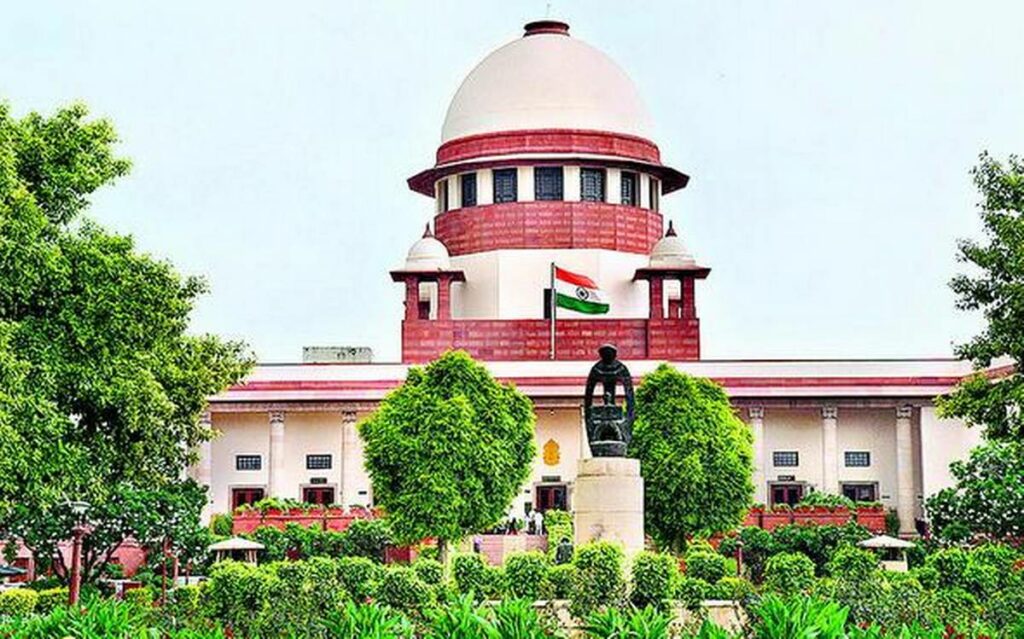NEW DELHI, Jan 30: The Supreme Court has agreed to hear a petition seeking a direction from the apex court to restrain the central government from “censoring” the controversial BBC documentary on the Prime Minister Narendra Modi and the 2002 Gujarat riots when he was the chief minister of his home state.
The petition filed on Monday will be heard by the Supreme Court on February 3, even as the union law minister Kiren Rijiju said the exercise was a “waste of time” of the apex court.
Appearing before a Bench led by Chief Justice of India D.Y. Chandrachud, senior advocate C.U. Singh made an oral mentioning of the petition filed by senior journalist N. Ram, Member of Parliament Mahua Moitra, and advocate Prashant Bhushan for early listing. The Union of India through the Ministry of Information and Broadcasting, Twitter Communications India Private Limited and Google India Private Limited have been named respondents in the case.
“Criticism of the government or its policies or even the judgment of the Supreme Court does not tantamount to violation of sovereignty and integrity of India… All citizens, including the Press, have the fundamental right to view, form an informed opinion, critique, report on and lawfully circulate the contents of the documentary as right to freedom of speech and expression incorporates the right to receive and disseminate information,” the petition said.
According to the plea, the Ministry, under Rule 16(3) of the Information Technology Rules of 2021 and Section 69(A) of the Information Technology Act, 2000 had on January 20 sent a legal request to Twitter India to block 50 tweets concerning and even containing links to the documentary. The tweets of Mr. Bhushan and Ms. Moitra were among those taken down. YouTube links of the video were blocked, the petition said.
The petitioners referred to reports of how students of the Rajasthan Central University in Ajmer were suspended for watching the film. The Jawaharlal Nehru University administration had issued an advisory to cancel a screening to maintain “peace and harmony” on the campus. They said there was news of detention of students and the presence of riot police at the Jamia Millia Islamia campus in Delhi.
The series is reported to be critical of Prime Minister Narendra Modi in connection with the 2002 Gujarat riots. The petition noted that Kanchan Gupta, senior advisor of the Ministry, had tweeted that the documentary was blocked on YouTube and Twitter following the orders of the Secretary of the Ministry on January 20 under emergency powers in the Information Technology (Intermediary Guidelines and Digital Media Ethics Code) Rules 2021.
The petitioners have urged the court to call for and quash orders directly or indirectly censoring the documentary. They said the January 20 order and subsequent proceedings were not in the public domain. “The government has chosen expediency over necessity and proportionality in their response to the documentary… The contents of the BBC documentary and tweets of Moitra and Bhushan are protected under Article 19(1)(a) of the Constitution. The contents of the documentary series do not fall under any restriction on free speech or restrictions imposed under Section 69A of the IT Act,” the petition said. It referred to apex court judgments which had held that the right of a filmmaker to make and exhibit his film was part of his fundamental right of freedom of speech and expression.
The petitioners submitted that censoring free speech through opaque orders was manifestly arbitrary and curtailed the fundamental right to seek judicial review. The petition argued that the powers of the Centre, which range from publishing ‘Codes of Practice’ and establishing an inter-departmental committee for hearing grievances to appointing a Ministry officer for the exercise of the powers under Rule 16, were part of the government oversight mechanism stayed by the Bombay High Court in an interim order.
A separate petition has been filed in the Supreme Court on the same issue by advocate M.L. Sharma. The court has agreed to hear it next week.
Meanwhile, Rijiju described as a “waste of the Supreme Court’s precious time” petitions challenging the ban on the documentary. “This is how they waste the precious time of Hon’ble Supreme Court where thousands of common citizens are waiting and seeking dates for Justice,” he tweeted.
The series, titled “India: The Modi Question”, has been dismissed as a biased “propaganda piece” by the government, which has blocked the sharing of any clips from it on social media. Directions to block the clips from being shared were issued using emergency powers available to the government under IT rules. The BBC says the documentary was “rigorously researched” and involved a wide range of voices and opinions, including responses from the BJP.
(Manas Dasgupta)

